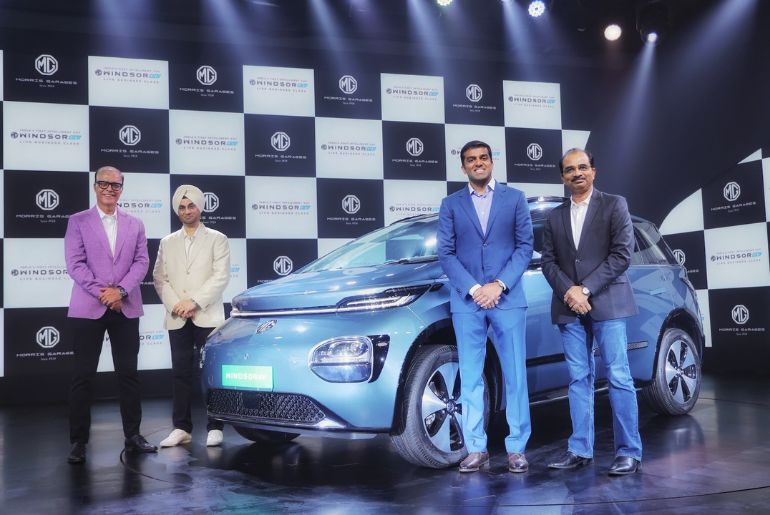In a significant move toward expanding India’s electric vehicle (EV) landscape, Sajjan Jindal-led JSW Group has partnered with China’s Chery Automobile Co. to launch a new energy vehicle brand by 2027. Sources familiar with the matter revealed that the agreement involves technology and component support from Chery, with JSW paying a one-time technology transfer fee and recurring royalties.
The partnership marks the first major passenger vehicle technology transfer from a Chinese automaker to an Indian company since the 2020 border clashes strained bilateral ties. While India has imposed strict curbs on Chinese investments in strategic sectors, this deal circumvents equity involvement, aligning with regulatory frameworks.
No Equity Involvement, But Royalty and Tech Licensing
Sources, who declined to be named due to the confidential nature of the deal, emphasised that the collaboration does not involve any equity exchange. Instead, JSW will independently own and operate the new EV brand, while Chery will supply advanced electric powertrains, hybrid systems, and intelligent cockpit technology.
Despite initial reports, both companies issued clarifications stating the arrangement primarily focuses on component supply. Chery, in an email response, said it would provide “components of parts of models”, while JSW will assemble and manufacture vehicles under its own brand in India.
JSW echoed this sentiment, stating, “The core technology will be developed in-house with the help of companies such as KPIT Technologies Ltd. and LTIMindtree Ltd.”
India’s EV Ecosystem Still Reliant on China
India’s electric mobility sector remains heavily dependent on Chinese supply chains — including rare earth magnets, lithium-ion cells, and other critical components. While China itself has tightened rules on technology transfer in sensitive sectors like EVs and semiconductors, Indian firms like Exide Industries, Amara Raja, and Tata AutoComp have existing partnerships with Chinese battery tech giants like SVOLT Energy Technology Co. and Gotion High-tech Co.
Chery, a top Chinese automaker and the country’s leading passenger vehicle exporter for over two decades, sees this partnership as part of its international expansion plans. The company has a presence in more than 100 countries and operates a joint venture with Jaguar Land Rover, owned by Tata Motors.
IPO Plans and Global Headwinds
Chery is reportedly preparing for an initial public offering (IPO) in Hong Kong that could raise approximately $1.5 billion, according to Bloomberg. However, the company’s extensive operations in Russia — where it has become a top-selling car brand — have raised concerns among global investors. As a result, Chery has scaled back operations in sanctioned markets like Cuba and Iran to reassure potential IPO backers.
The royalty revenue from the JSW deal is expected to boost Chery’s balance sheet and support its global ambitions, which include building a $1 billion factory in Turkey.
JSW’s Expanding Auto Vision
JSW is reviewing multiple Chery models, particularly from the iCar SUV range, to adapt for the Indian market. The new EV brand will function independently of JSW’s existing venture with SAIC Motor Corp., which continues to market MG-branded vehicles in India.
In parallel, JSW is developing manufacturing infrastructure in Maharashtra to begin production of its own brand of electric passenger vehicles by 2027. The company also plans to launch electric trucks and buses as early as next year.
According to insiders, JSW has finalised two separate technology licensing agreements with other unnamed Chinese automakers to further bolster its automotive portfolio.
Parth Jindal, director of JSW MG Motor India, recently confirmed the company’s intent to increase its stake in the MG Motor India venture by acquiring additional equity from SAIC, signalling the conglomerate’s long-term commitment to India’s auto sector.
Conclusion
This strategic collaboration between JSW and Chery comes at a pivotal time for India’s EV ecosystem, as local manufacturing ambitions accelerate amid geopolitical complexities and global supply chain challenges. If successful, the initiative could redefine the EV landscape in the country and set a new benchmark for Indo-Chinese cooperation in clean mobility.

